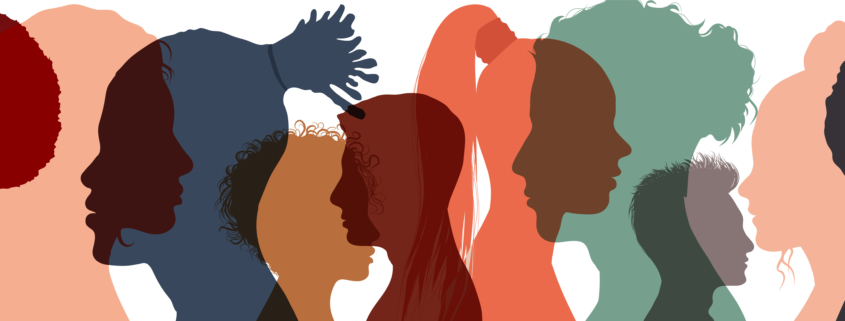Shifting the Landscape: How Early Engagement with Patient Advocacy Groups is Transforming Clinical Trials and Promoting Health Equity
Imagine a world where medical treatments work for everyone, regardless of background. In recent years, the landscape of clinical trials has been evolving, with an increasing emphasis on diversity and health equity. At the forefront of this shift is patient advocacy. This vision is becoming a reality as Patient Advocacy Groups (PAG) champion the cause of diversity and health equity in clinical trials. By partnering with these groups early in the research process, we’re changing how trials are conducted and transforming the entire healthcare landscape. Here’s how:
Why Diversity in Clinical Trials Matters
Clinical trials are the lifeblood of medical innovation, providing the critical data needed to develop new treatments. Yet, for too long, these trials have been skewed toward homogeneity, often excluding the very populations who stand to benefit the most.
Diverse clinical trials are essential because genetic, environmental, and socio-economic factors can significantly influence how different groups respond to treatments. Without inclusive research, we risk creating therapies that are less effective—or even harmful—for underrepresented populations. By ensuring a broad spectrum of participants, we pave the way for safer, more effective treatments for everyone.
The FDA’s Diversity Action Plan, released in June 2024, emphasizes the importance of promoting diversity in clinical trials and ensuring that treatments are safe and effective for all populations, which is echoed in the emphasis on early engagement with Patient Advocacy Groups (PAGs) to foster inclusive and patient-centered research.
The Game-Changing Role of Patient Advocacy and PAGs
Patient advocacy groups (PAGs) are revolutionizing the clinical trial landscape by championing the cause of diversity and health equity. Their involvement in clinical research is proving to be transformative, addressing long-standing issues and paving the way for more inclusive and effective medical treatments. Here’s how PAGs are making a significant impact:
1. Raising Awareness and Educating Communities
One of the most crucial roles of PAGs is raising awareness about the importance of clinical trials. Advocacy groups actively educate communities about the benefits of participating in trials, demystifying the process, and addressing common misconceptions. By leveraging their networks and outreach capabilities, PAGs help ensure that diverse populations are informed and engaged, increasing participation rates and helping to bridge the gap between researchers and underrepresented communities.
2. Building Trust and Bridging Gaps
Many historically marginalized communities have deep-seated mistrust of medical research due to past abuses and ongoing disparities. PAGs serve as trusted intermediaries, using their established relationships within these communities to foster trust and encourage participation in clinical trials. Their role as advocates helps to mitigate fears and overcome skepticism, facilitating more inclusive research practices and ensuring that diverse perspectives are considered.
3. Boosting Recruitment and Retention
Recruiting and retaining diverse participants in clinical trials can be challenging, but PAGs play a vital role in this process. They assist researchers in identifying potential participants from various backgrounds and offer support throughout the trial to enhance retention rates. This support includes providing culturally sensitive resources, addressing participant concerns, and ensuring that all participants feel valued and supported, which is crucial for trial success.
4. Providing Valuable Insights and Feedback
PAGs bring valuable insights into the design and implementation of clinical trials. By involving these groups early in the research process, researchers gain access to a wealth of knowledge about patient needs, preferences, and potential barriers to participation. This feedback helps design patient-centric trials that are more responsive to the real-world experiences of diverse populations, ultimately leading to better trial outcomes and more effective treatments.
5. Advocating for Policy Changes
Beyond individual trials, PAGs advocate for broader policy changes that promote diversity and health equity in clinical research. They work with policymakers and regulatory bodies to influence guidelines and standards that support inclusive practices. By championing these changes, PAGs help to create a more equitable research environment that benefits all patients.
Some Strategies for Enhancing Diversity and Equity (Interestingly, these also work for Early Patient Engagements—PAGs)
We must adopt and expand strategies promoting early engagements, diversity, and health equity in clinical trials.
- Foster Strong Partnerships: Develop robust collaborations between researchers, patient advocacy groups, and community organizations to amplify the reach and impact of clinical trials.
- Promote Cultural Competency: Train researchers and trial staff in cultural competency to better understand and address the unique needs of diverse populations.
- Design Patient-Centric Trials: Involve advocacy groups in designing and implementing clinical trials to ensure they are patient-centric and responsive to the needs of all participants irrespective of sexual orientation, gender, race/ethnicity, age, and other social factors.
- Communicate Transparently: Maintain open, honest communication with participants throughout the trial process, sharing results and acknowledging the vital contributions of all involved. Additionally, ensure that participants’ health literacy is considered; thus, health communication is key.
Conclusion
Early engagement with patient advocacy groups is transforming the landscape of clinical trials, making them more inclusive and representative. By prioritizing diversity and health equity, we can develop treatments that are effective for all populations, ultimately leading to a more equitable healthcare system. The collaboration between researchers and patient advocacy groups is a powerful force for change, paving the way for a future where every patient has access to the best possible care. Together, we can ensure that all people share the benefits of medical research, regardless of background or circumstance.
“If we want to make sure every patient has the best shot, we have to have diversity in clinical trials. The time is now.” – Dr. Freda Lewis-Hall
Sources:
Image 1: The Social Media VUCA-bulary!
Image 2: Patient Advocacy’s Power in Giving Voice to Minority Clients—North Shore Patient Advocates
FDA Guidance Provides New Details on Diversity Action Plans Required for Certain Clinical Studies




